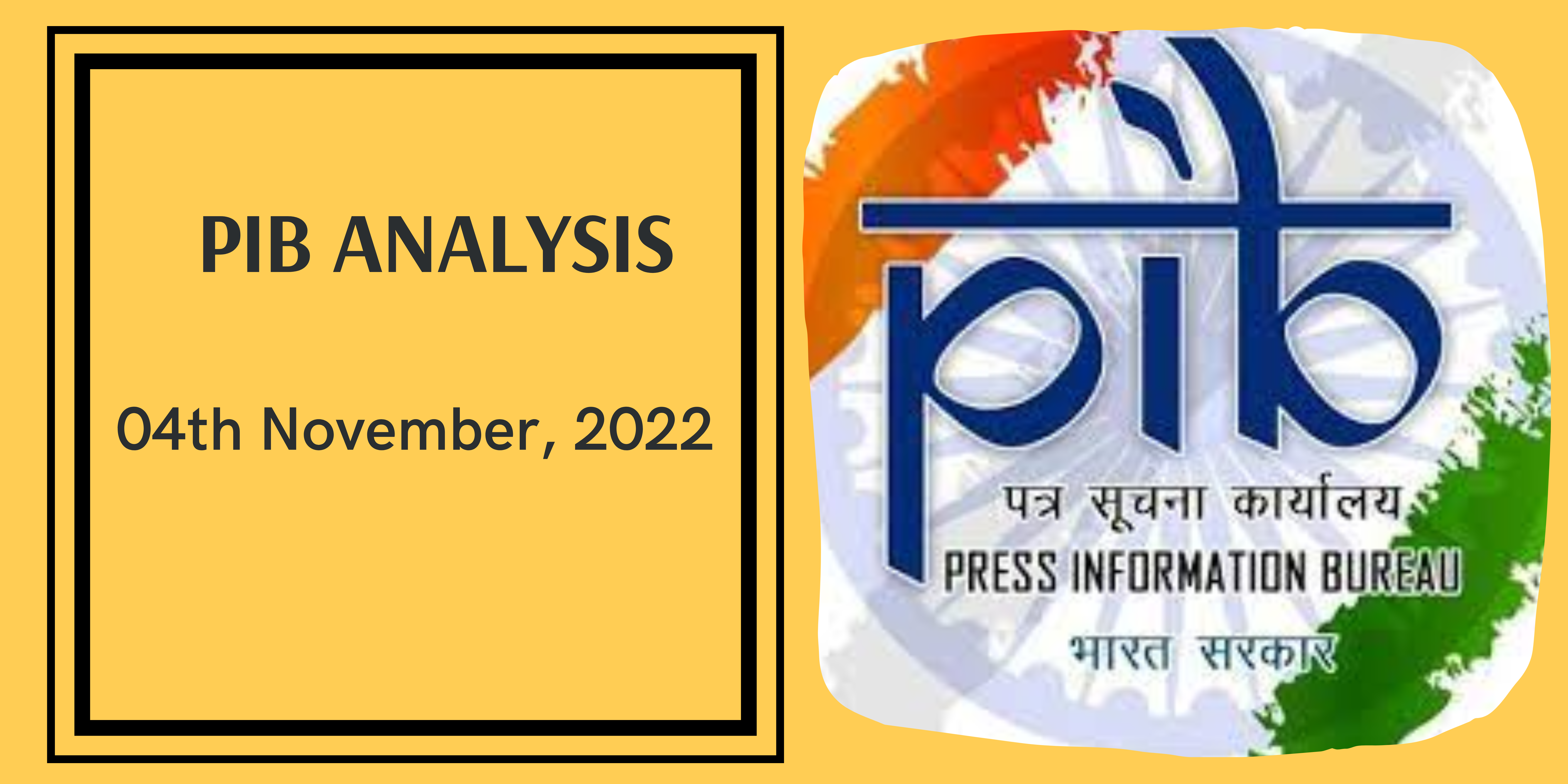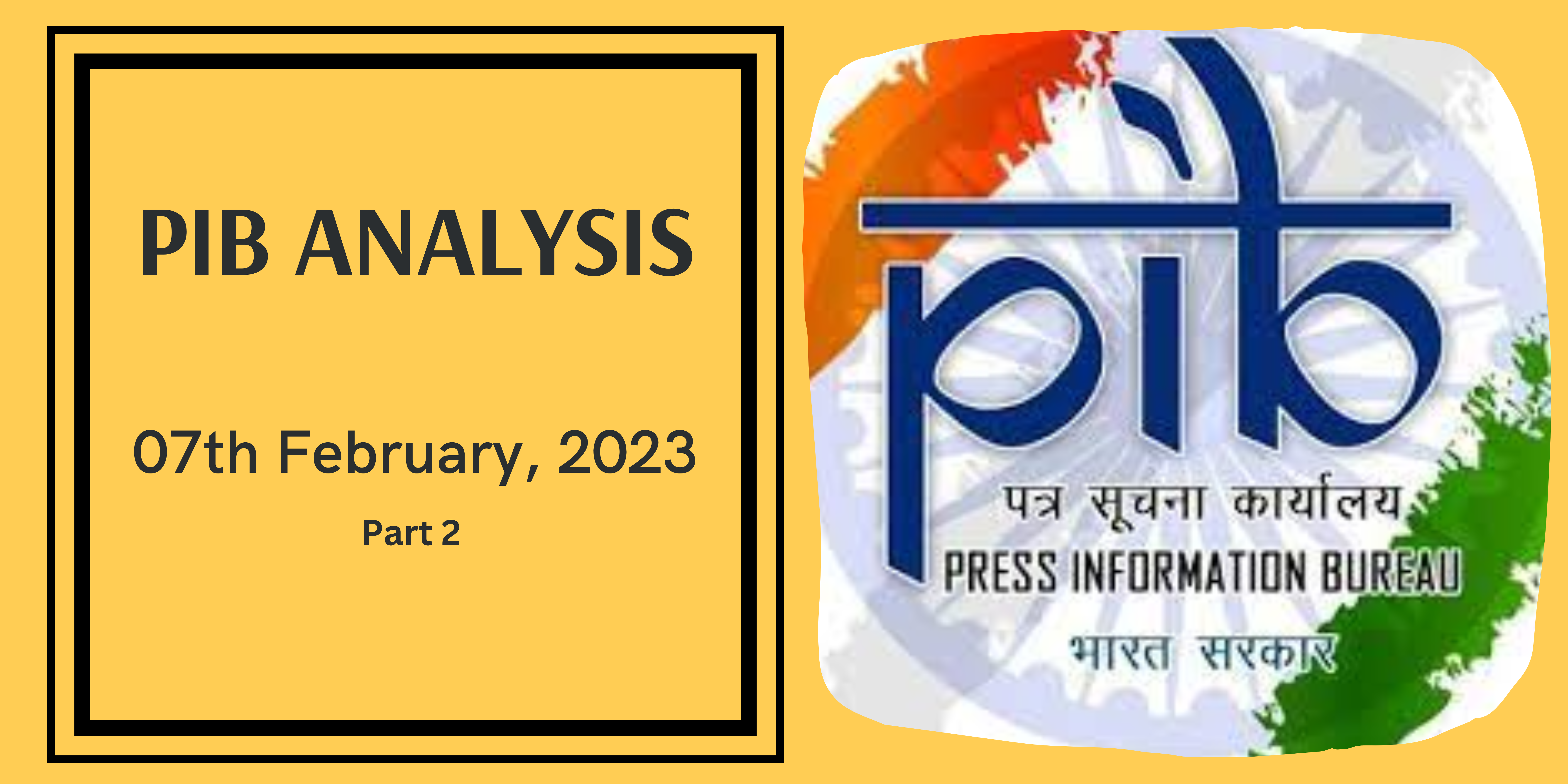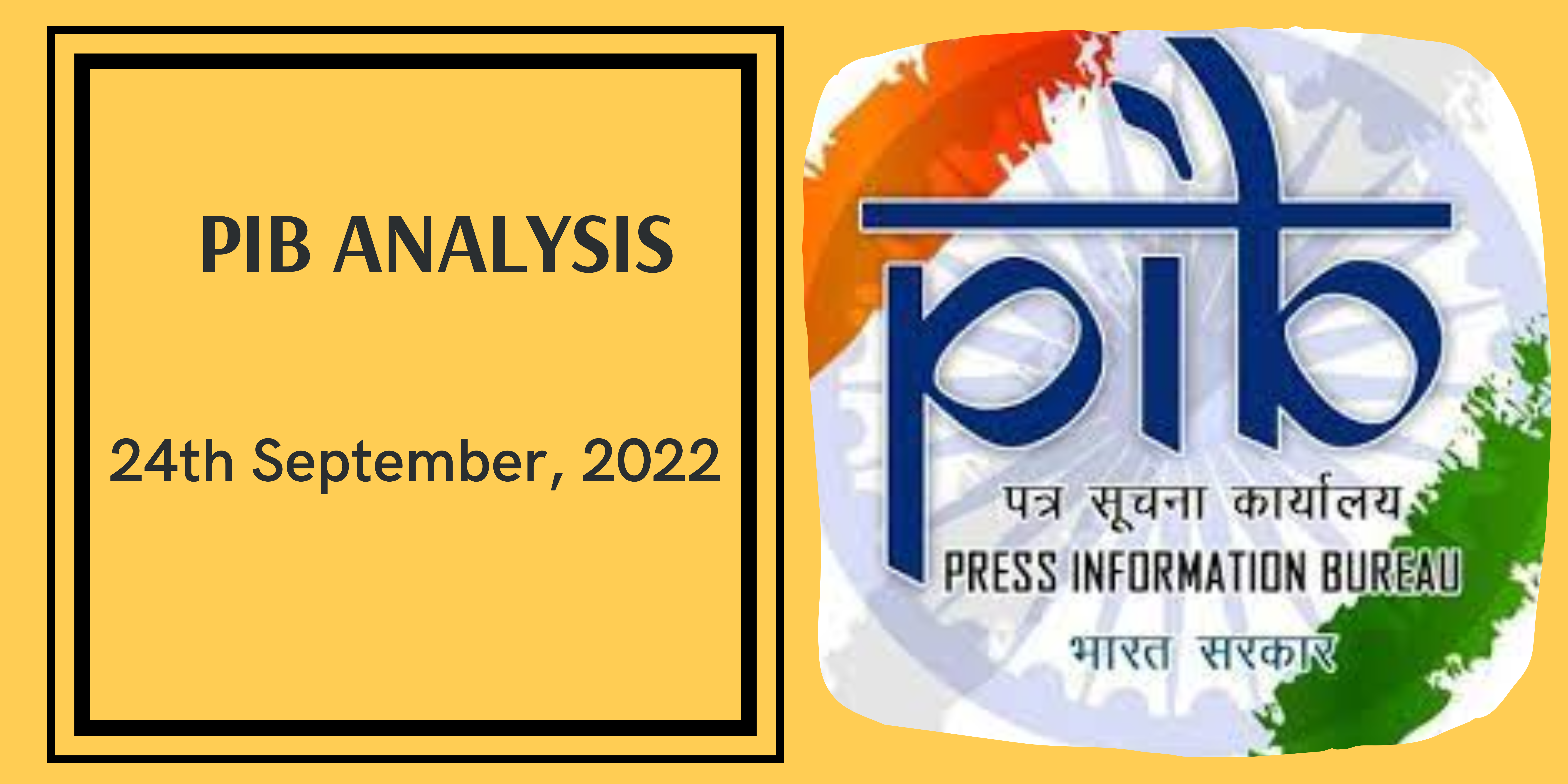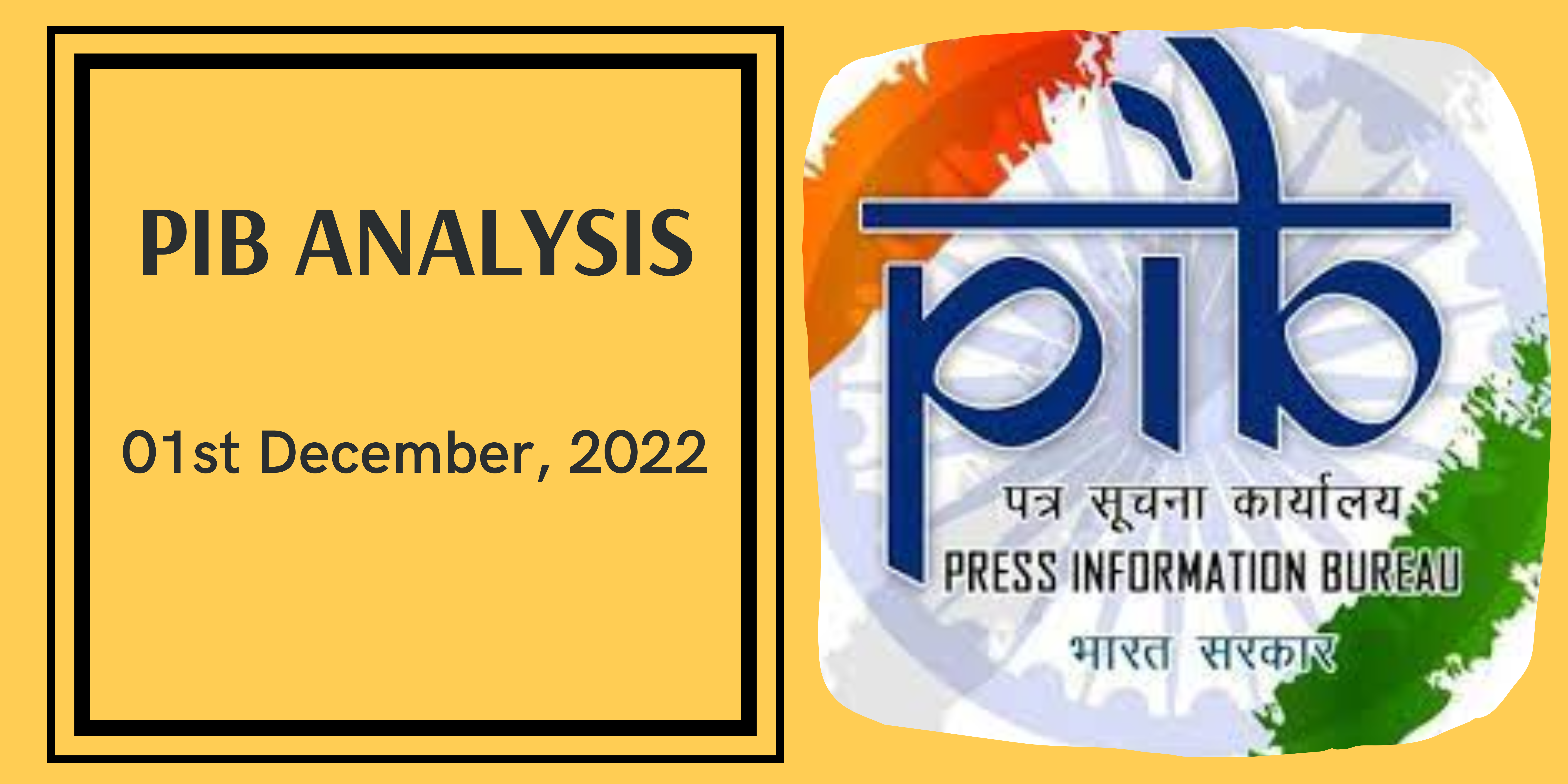PIB Analysis 04-11-22
New Design and Camouflage Pattern Uniform
- The process for registration of the new Camouflage Pattern and Design of Improved Combat Uniform to establish ownership of Indian Army has been completed by the Controller General of Patents, Designs and Trademark, Kolkata.
- The improved uniform has a contemporary look and functional design.
- The fabric has been made lighter, stronger, breathable, quick drying and easier to maintain.
- The uniform’s uniqueness is evident with the inclusion of gender specific modifications for women’s combat uniform.
- The exclusive ‘Intellectual Property Rights (IPR)’ of the Design and Camouflage Pattern now rests solely with the Indian Army, and therefore manufacturing by any vendor who is not authorised to do so will be illegal and is liable to face legal repercussions.
- Indian Army can enforce exclusive rights to the design and can file infringement suits by way of a civil action before a competent court of law.
- Remedies against infringements include interim and permanent injunctions as well as damages.
Performance Grading Index
- The Department of School Education and Literacy, Ministry of Education today released the Performance Grading Index (PGI) for States/UTs for 2020-21, a unique index for evidence based comprehensive analysis of school education system across State/UTs.
- The Indian Education System is one of the largest in the world with about 14.9 lakh schools, 95 lakh teachers, and nearly 26.5 crore students from varied socio-economic backgrounds.
- DoSE&L devised PGI for States/UTs to provide insights and data driven mechanism on the performance and achievements of on the success of school education across all States/UTs.
- The prime objective of PGI is to promote evidence-based policy making and highlight course correction to ensure quality education for all.
- The PGI structure comprises of 1000 points across 70 indicators grouped into 2 categories viz., Outcomes, Governance Management (GM).
- These categories are further divided into 5 domains, viz., Learning Outcomes (LO), Access (A), Infrastructure& Facilities (IF), Equity (E) & Governance Process (GP).
- As was done in the previous years, PGI 2020-21 classified the States/UTs into ten grades viz., highest achievable Grade is Level 1, which is for State/UT scoring more than 950 points out of total of 1000 points.
- The lowest grade is Level 10 which is for score below 551.
- A total of 7 States and UTs, Viz., Kerala, Punjab, Chandigarh, Maharashtra, Gujarat, Rajasthan, and Andhra Pradesh have attained Level II (score 901-950) in 2020-21 as compared to none in 2017-18 and 4 in 2019-20.
- Gujarat, Rajasthan and Andhra Pradesh are the new entrants to highest achieved level of any State so far.
- The newly formed UT viz., Ladakh has made significant improvement in PGI from Level 8 to Level 4 in 2020-21 or improved its score by 299 points in 2020-21 as compared to 2019-20 resulting into highest ever improvement in a single year.
CRISPR gene-editing technology
- CRISPR (Clustered Regularly Interspaced Short Palindromic Repeats) are short DNA sequences found in the genome of prokaryotic organisms such as bacteria, which are reminders of previous bacteriophage (viruses) attacks that the bacteria successfully defended against.
- Cas9 enzyme (part of bacteria’s defence mechanism) uses these flags to precisely target and cut any foreign DNA, thus protecting the bacteria from future attacks by similar bacteriophages.
- The CRISPR gene-editing technology that received the Nobel Prize in 2020 has witnessed a new height.
- Indian scientists have demonstrated for the first time that the associated Cas9 enzyme, which acts as molecular scissors to cut DNA at a location specified by a guide RNA, can bind to and cut the target DNA at very low temperatures.
- CRISPR-Cas9 technology has been successfully used for many purposes, including basic studies of gene function, agriculture, and medicine to increase our knowledge of disease processes and their potential future therapies.




